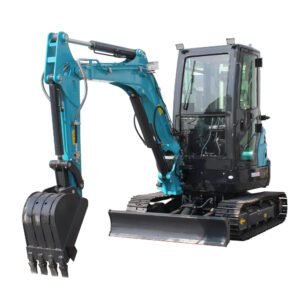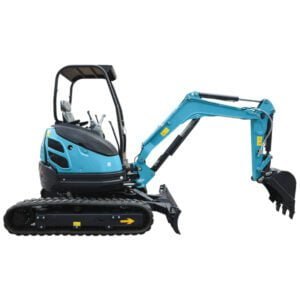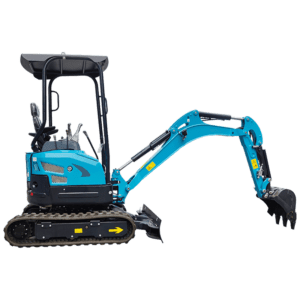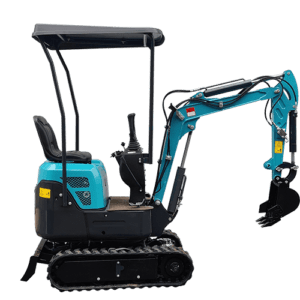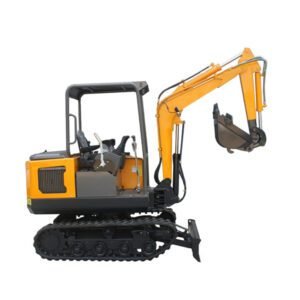Email: [email protected] Whatsapp: 8618266768780
Mini Excavators vs. Full-Size Excavators: Which to Choose?
Welcome to My Blog!
Before we dive into the content, I’d love for you to join me on my social media platforms where I share more insights, engage with the community, and post updates. Here’s how you can connect with me:
Facebook: https://www.facebook.com/profile.php?id=100072217509763
LinkedIn: https://www.linkedin.com/company/74949059/admin/dashboard/
YouTube:https://www.youtube.com/@tractormanufacturer-lc5qz
TikTok: https://www.tiktok.com/@tractormanufacturer
Now, let’s get started on our journey together. I hope you find the content here insightful, engaging, and valuable.
Introduction
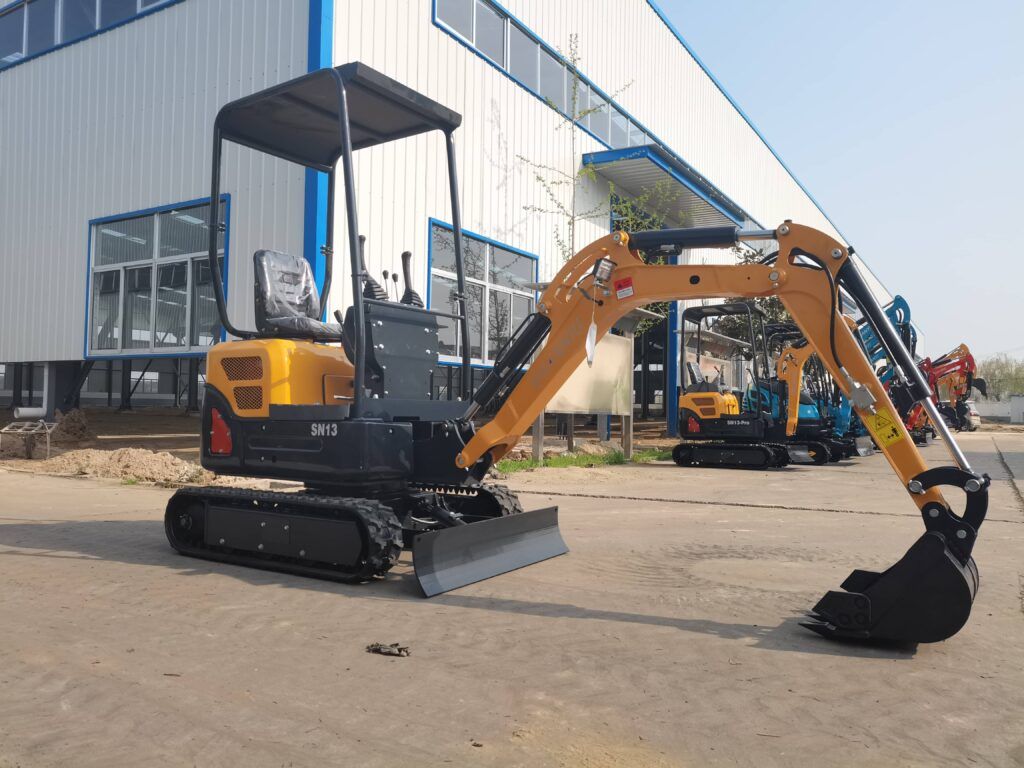
Excavators are essential machines in the construction and landscaping industries. From digging foundations to demolition and material handling, they perform a wide range of tasks efficiently. However, when choosing between mini excavators and full-size excavators, it’s important to consider factors like project requirements, budget, and operating conditions. Each type has distinct advantages and is suited for specific applications. Understanding these differences can help you select the best machine for your needs.
In this article, we’ll explore the key differences between mini excavators and full-size excavators, their applications, and how to determine which one is right for your projects.
What Are Mini Excavators?
Mini excavators, also known as compact excavators, are small, lightweight machines typically ranging in size from 0.7 to 8 tons. They are designed for smaller-scale projects, tight spaces, and tasks requiring precision. Despite their compact size, mini excavators are powerful and versatile, making them ideal for urban construction, landscaping, and utility work.
Key Features of Mini Excavators
- Compact design for tight spaces
- Lower ground pressure, reducing soil disturbance
- Versatile with multiple attachment options like augers, hammers, and buckets
- Easier transportation due to their lightweight nature
What Are Full-Size Excavators?
Full-size excavators are larger and heavier machines, usually weighing between 10 to 90 tons or more. They are built for heavy-duty operations like mining, large-scale construction, and industrial tasks. Full-size excavators are known for their superior power, capacity, and reach.
Key Features of Full-Size Excavators
- High digging power and lifting capacity
- Suitable for large-scale and demanding projects
- Advanced features like long arms and large buckets
- Increased fuel consumption compared to mini excavators
Comparing Mini Excavators and Full-Size Excavators
| Aspect | Mini Excavators | Full-Size Excavators |
|---|---|---|
| Size and Weight | Compact, lightweight (0.7-8 tons) | Large, heavy (10-90+ tons) |
| Applications | Small projects, landscaping, urban areas | Large construction, mining, heavy-duty tasks |
| Versatility | Suitable for precision tasks and multiple attachments | Ideal for bulk excavation and industrial tasks |
| Mobility | Easy to maneuver in confined spaces | Requires more space to operate |
| Operating Costs | Lower fuel consumption and maintenance | Higher fuel and maintenance costs |
| Transportability | Can be transported on small trailers | Requires specialized transport vehicles |
| Ground Impact | Minimal impact due to lower ground pressure | Higher ground impact due to weight |
This table highlights the primary differences between mini excavators and full-size excavators, helping you assess their suitability for your specific needs.
Key Considerations for Choosing Between Mini and Full-Size Excavators
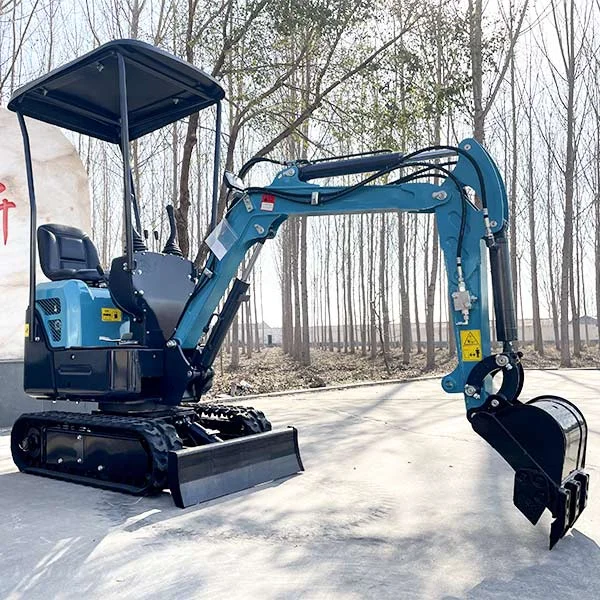
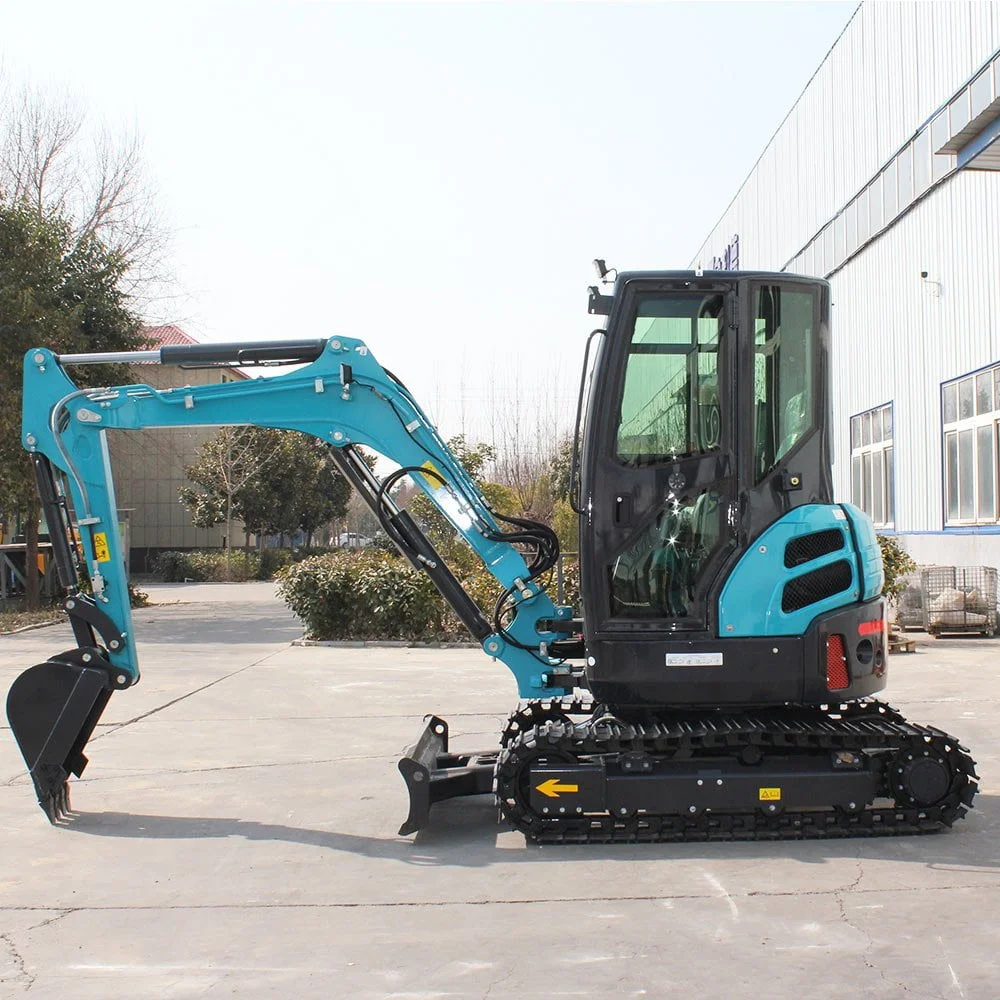
Project Scale
The scale of your project is one of the most critical factors when choosing between mini excavators and full-size excavators. Mini excavators are perfect for smaller projects like residential construction, trenching, or landscaping. Full-size excavators, on the other hand, are better suited for large-scale projects such as road construction, mining, and massive site preparation.
Jobsite Conditions
Mini excavators are ideal for confined or urban spaces where maneuverability is crucial. Their compact design allows them to navigate tight spaces without causing excessive disruption. Full-size excavators require more space and are more suited to open areas like large construction sites.
Budget and Operating Costs
Mini excavators typically have lower upfront costs and operating expenses compared to full-size excavators. They consume less fuel and have lower maintenance costs. If your project requires high digging power or heavy lifting, however, investing in a full-size excavator may be more cost-effective in the long run.
Attachments and Versatility
Both mini and full-size excavators can be equipped with various attachments to enhance their versatility. Mini excavators are often used with smaller attachments like augers and grapples for precision work, while full-size excavators can handle larger attachments for heavy-duty tasks.
Transportation
Transporting mini excavators is easier due to their lightweight nature and smaller size. They can often be moved using a standard truck and trailer. Full-size excavators require specialized transport vehicles and more careful planning.
Applications of Mini Excavators
Landscaping and Gardening
Mini excavators are perfect for creating garden beds, digging irrigation trenches, and planting trees.
Utility Work
They are frequently used for tasks such as laying pipes and cables in urban areas.
Road Maintenance
Mini excavators can be used for pothole repair, sidewalk installation, and other small-scale roadwork projects.
Demolition
For small-scale demolition tasks, mini excavators with attachments like hydraulic breakers are highly effective.
Applications of Full-Size Excavators
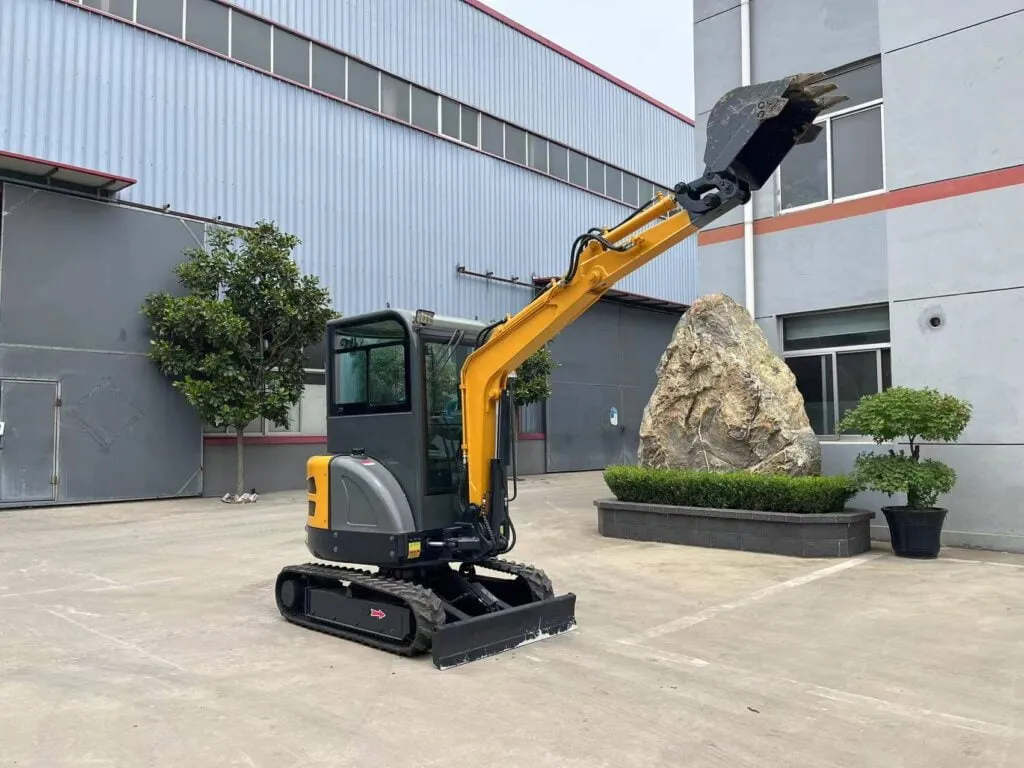
Large-Scale Construction
Full-size excavators are indispensable for large-scale projects such as building highways, bridges, and commercial structures.
Mining and Quarrying
These machines are capable of handling heavy loads and digging deep into the ground for mining operations.
Bulk Material Handling
Full-size excavators excel at moving large volumes of soil, gravel, and other materials efficiently.
Benefits of Using Mini Excavators
- Ease of Operation: Mini excavators are user-friendly and easier to control, even for operators with less experience
- Cost-Effective: Lower operating and maintenance costs make them a budget-friendly option for small projects
- Environmental Impact: Their lower fuel consumption reduces their carbon footprint
Benefits of Using Full-Size Excavators
- High Efficiency: Full-size excavators can handle large-scale projects with ease, completing tasks faster and more efficiently
- Superior Power: Their digging depth, lifting capacity, and power make them ideal for demanding tasks
- Advanced Features: Many full-size models come with advanced technology, such as GPS systems and automated controls
Conclusion
When deciding between mini excavators and full-size excavators, it’s essential to evaluate your project requirements, jobsite conditions, and budget. Mini excavators are the perfect choice for small-scale projects and confined spaces, while full-size excavators offer unmatched power and efficiency for large-scale operations. Both types have their advantages, and choosing the right one can significantly impact the success of your project.
FAQ
What is the primary difference between mini excavators and full-size excavators?
Mini excavators are smaller and designed for compact spaces, while full-size excavators are larger and more suited for heavy-duty tasks.
Are mini excavators more cost-effective?
Yes, mini excavators have lower operating and maintenance costs, making them a cost-effective option for smaller projects.
Can mini excavators handle heavy-duty tasks?
Mini excavators are not designed for heavy-duty tasks. They are best suited for small to medium-scale projects.
What attachments are available for mini excavators?
Common attachments include buckets, augers, grapples, and hydraulic breakers, which enhance their versatility.
How do I choose the right excavator for my project?
Consider factors such as project scale, jobsite conditions, budget, and required attachments when choosing between mini and full-size excavators.
Are full-size excavators suitable for urban projects?
Full-size excavators are better suited for open spaces and large projects. For urban areas with limited space, mini excavators are the ideal choice.
About Us
Shandong Qilu Industrial Co., Ltd. is a professional manufacturer and exporter integrating the development and production of excavators, loaders and tractors. We provide the best service, absolutely.
Recent Posts
Video demo
-1.png)
Contact Us Today!
Any question, quote or inquiry? Click the button to send message.
Qilu Industrial will always here to help.

